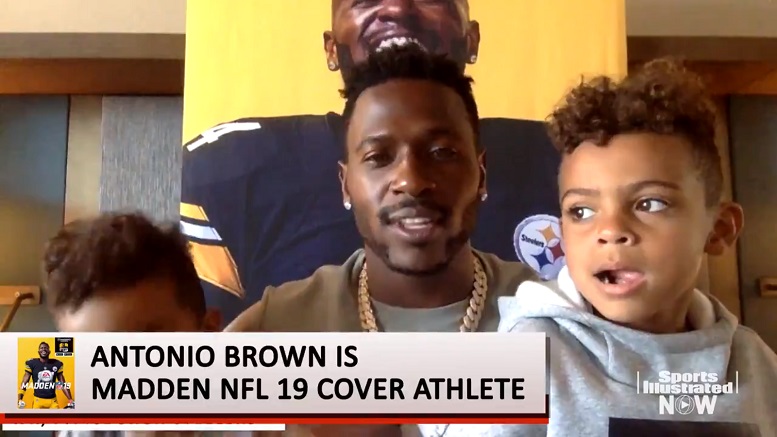Of all the grievances that Antonio Brown has since expressed publicly regarding his nine years with the Pittsburgh Steelers, perhaps the most absurd came in the middle of his 40-plus-minute interview with Jeff Darlington on ESPN.
Apparently he is greatly concerned about the fact that the organization hasn’t taken great strides to get to know his family well. And the thing is, I’m not sure how true that even is, as there is evidence to the contrary, such as a video that he himself posted on social media of his child playing with Ben Roethlisberger’s child during training camp.
Aditi Kinkhabwala, who has been one of the proponents of Brown’s complaints against the Steelers, has talked before about how the Steelers get to know people’s families. When James Saxon’s contract wasn’t renewed, she recalled that he always asked her how his song was doing. We have heard from a number of players, including Alejandro Villanueva, about how Art Rooney II specifically takes time to get to know his players.
Brown disputed that, at least in his experiences. “Is money important? Is winning important? Or [is] the integrity between the men on the team more important?”, he asked. “The older you get, the more you understand what means most to you. What do you stand for? Who are you?”
He went on. “If you work for me for nine years, wouldn’t you expect you to know my girlfriend’s name, or my dad’s name? My kid? Would you expect me to meet your kid, or at least know you on the level of some sort of integrity, like, ‘hey man, I appreciate what you do’?”.
Darlington asked him who specifically he was referring to. “The owner. Guys who work in the organization. Coaches”, he said. In a later part of the interview, he noted that he and Roethlisberger had only been to each other’s houses once. It’s interesting that he never took a moment to consider, perhaps, if there was a reason he didn’t have that sort of relationship with his quarterback, and what role he might have played in that being the reality.
“If I know your family and you know me, you’re gonna have another level of how hard you’re gonna go for me, or another level of understanding of togetherness of what we’re committing to do”, he said in explaining why it’s important for him to an organization to know him on that level.
“It’s like, when you even think about that little minute detail—these are the people I’m working for, these are the people I’m working with”, he went on. “Like, how am I going to work for the people that don’t even know my family. You don’t even know how I’m coming or who I really is, so you not gonna have that respect for me or that energy for me when something go crazy cuz you don’t even know me”.
In a topic I will be touching on more later in the day, Brown spent a lot of time in the early portions of the interview discussing his upbringing in a troubled neighborhood and how that came to define him as a person, and even contributed to his emotional nature. I gather that this is what he alludes to in the “when something go crazy” comment.
“I would like to know the guy I work for got my best interests. And I would like to know the team got my best interests”, he said. He is entitled to desire this, but I’m unclear as to why he would think he can find that in another football business.








